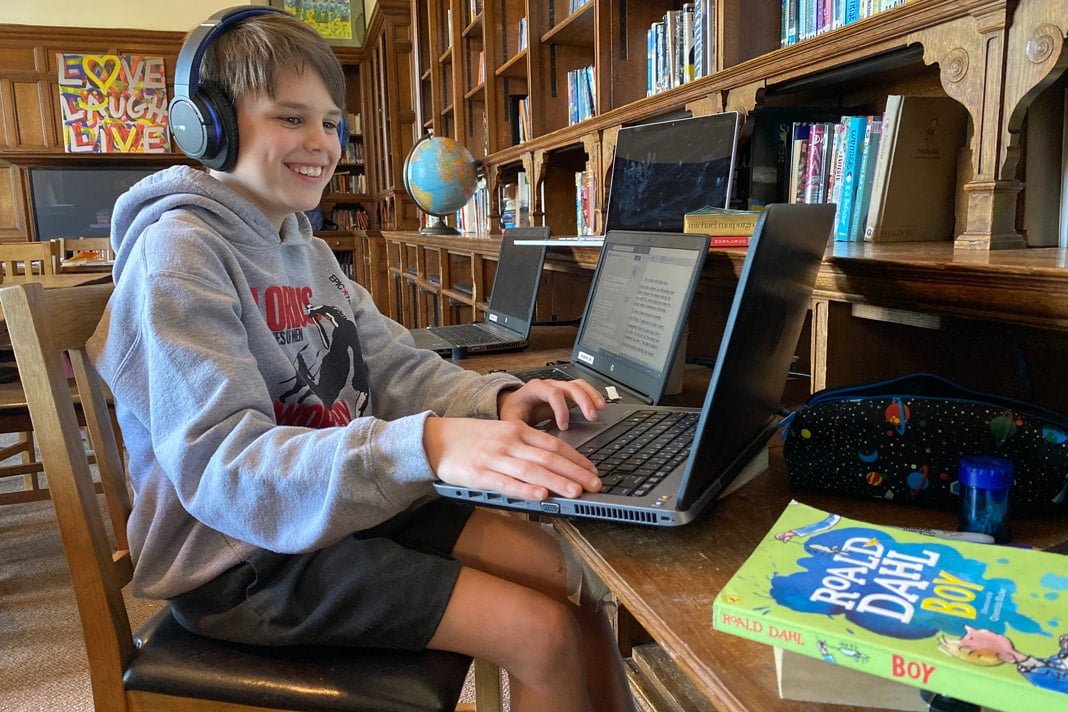The Headmaster of Cottesmore discusses balancing technology in education, and the vital importance of teaching agency and entrepreneurship to young people
At Cottesmore the children do not have phones. They are always talking, always engaging, face-to-face and in real time, in each other’s physical presence. They build camps and dens in the school grounds and they all play sport daily. This is where we start the Cottesmore journey, but there is another important aspect to modern life – the screens in our hands and on our desks.
Do we surf the digital wave, or do we stand on the beach and watch as it crashes towards us? Of course, the answer lies in balance and discipline. With a rise in screen time, smart phones, Zoom lessons and social media, the digital age has well and truly landed. Over the last 18 months, schools have harnessed these technologies with huge speed and a positive attitude towards change has never been more important. Technology is merely the vehicle to take us from A to B. It is the servant and not the master and must be treated as such. It should be in the background working hard for us, not consuming our every thought and deed.

The key is to value both technology and tradition in equal measure and to strive for a balance between implementation of technology and typical childhood activities. While Cottesmore has always strived to liberate children from dependency on screens – as our approach to mobile phones indicates – children’s screen education is important. Here, it takes place during ICT lessons and coding club and we have an award-winning robotics team.
The recent collaboration with Priya Lakhani OBE, founding CEO of edtech company Century Tech, indicates our commitment to digital-based learning. This platform has been a huge success at the school, enabling teachers to better understand each child’s learning journey and enhance their working relationship with technology. We are delighted and honoured to have Ms Lakhani join our community as ‘Digital Patron’. With the rich wealth of experience she brings, we are enjoying not only her entrepreneurial spirit, but also her innate understanding of the powerful partnership between technology and education.
Fundamentally, the role of all schools is – from a very young age – to create and curate an ideas-led environment, where children feel confident to explore their own passions. This means arming children with the confidence to have a positive input on their education; part of that is the ability to identify and implement change. Pupil voice is very important here and our ‘Councils’ provide children with an opportunity to implement change across various elements of school life, including the Boarding, School, Safeguarding, Kindness, Food and Charity councils. The children embrace being involved and their opinion is taken seriously.
“At Cottesmore, we believe the key is to value both technology and tradition in equal measure and to strive for a balance”
Pupil agency and entrepreneurialism are concepts that are only going to become more important as the curve of exponential change accelerates upwards. Our ‘Cottesmore Talks’ were conceived three years ago to introduce children to the concept of entrepreneurship and to understanding how individual aspirations can dictate and inspire the professional journey. The children have been inspired by all of our guest speakers and have embraced the candid nature of these sessions. The school is also in talks with the lead team at the dynamic new company Children’s Business Fair UK, who are on a mission to educate as many children as possible about the benefits of entrepreneurship. (I must declare a personal interest here as this is run by my brother Sam.)
All eyes at Cottesmore are on the future, but it is important that we are mindful of the present and the people around us. A good education teaches us to have a firm grip on both at the same time.
Cottesmore School cottesmoreschool.com
Further reading: Falcons School, on giving children space to grow
You may also like...






























